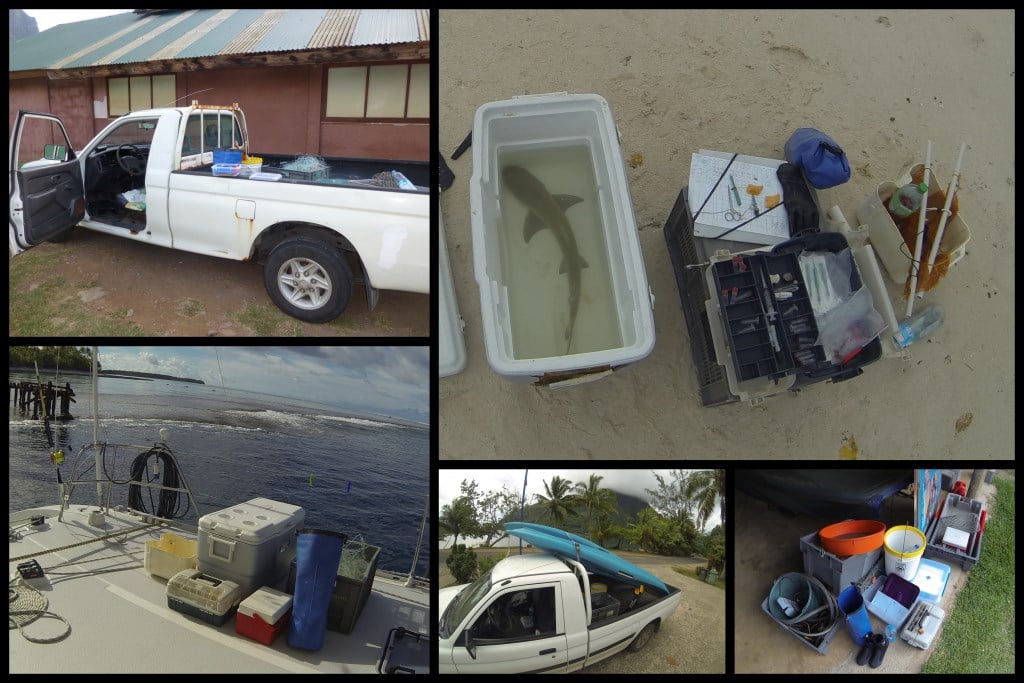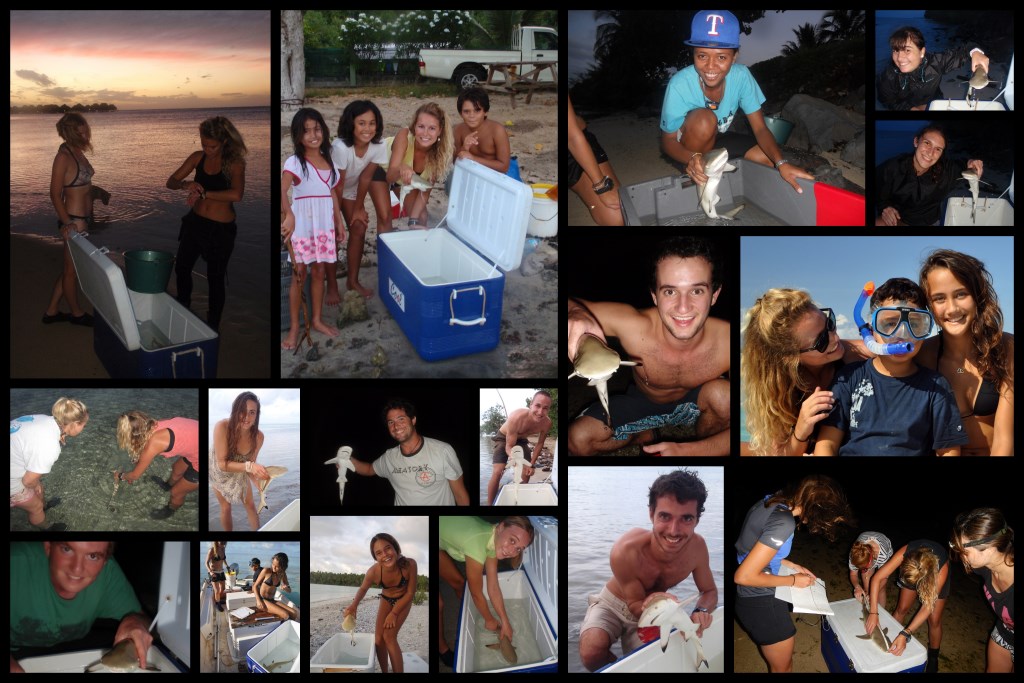Getting ready for the field
Preparing to undertake field work for the first time in a new location is no mean task and it’s made even more intimidating when that location is a remote coral speck in the immense Indian Ocean; once you’re there, you can’t go out and buy something you’ve forgotten. Fortunately I have done practical field work at remote research stations before, in The Bahamas and French Polynesia, and both experiences have prepared me for the first field-work season that will contribute to my PhD.
Bimini Biological Field Station (BBFS)
My first assignment was at the BBFS in The Bahamas. When you arrive at the Shark Lab, as it’s called, you realise immediately that everything, absolutely everything, is organised for the well-being of the students and volunteers. From the contents of the kitchen cupboards to the bathroom cloths, every item is labelled and has its own place. Even more impressive is the organisation in the laboratory. Everything is meticulously arranged and laminated instruction lists tell you what to pack for each field-work expedition. In addition, highly qualified and motivated volunteers are eager to assist you on those outdoor trips.
Being a student at the Shark Lab was the ideal way to start my life as a marine biologist. All the equipment I required for my study was already at the lab. The primary investigators and staff members ensured that I had all the support and supervision that I needed and the lab had already completed the selection process for volunteers. Unhindered by organisational tasks, I was able to concentrate fully on the successful completion of my research project.
Centre de Recherche Insulaire et Observatoire de l’Environnement (CRIOBE)
I then went to the CRIOBE research station in Moorea, French Polynesia, even though sharks are not the primary subject of study there. CRIOBE focuses on the investigation, observation and conservation of coral reefs, but its station is well equipped with a wide array of field-work materials. So if your aim is to catch and study sharks, all you need to do is get the necessary equipment together, load it into a pickup truck, set the nets in one of the known nursery areas – and then wait for the juvenile sharks to appear.
As for getting assistance in the field, that was not a major problem either. There is a diverse group of people who are interested in catching young sharks; you just have to find and recruit them. During my six months as a research assistant, Bachelors, Masters and PhD students, local families and their friends, tourists, Argentinean world travellers, honeymooners and even Brazilian and French sailors all helped me with my field work.
It was very rewarding to interact with these volunteers and to see their excitement when they first came into contact with wild sharks. The downside of having an ever-changing team, though, was having to explain my study methods over and over again. Most of my assistants had never seen a live shark, and certainly had not helped to collect tissue for scientific purposes.
Being a research assistant at the CRIOBE station helped me to become independent in organising my field-work methods and to take responsibility for my research planning and activities.
SOSF D’Arros Research Centre (SOSF–DRC)
As a PhD candidate and a Save Our Seas Foundation (SOSF) project leader, for my upcoming project I will be based at the SOSF–DRC in the Seychelles, that remote speck in the Indian Ocean. Not only am I responsible for my field work, but I must also organise all the equipment, write the sampling procedures and recruit the volunteers. This new field location is going to be highly challenging, but the varied experiences at my previous research stations will come in handy now. Currently based at a university in the South of France, I’m working on the preparation of my first sampling season so that my PhD programme will get off to a good start. At the beginning of November, my field team and I will arrive at the SOSF–DRC and I will be able to write my second blog about our early field-work experiences and our challenges and achievements on the beautiful St Joseph Atoll.


